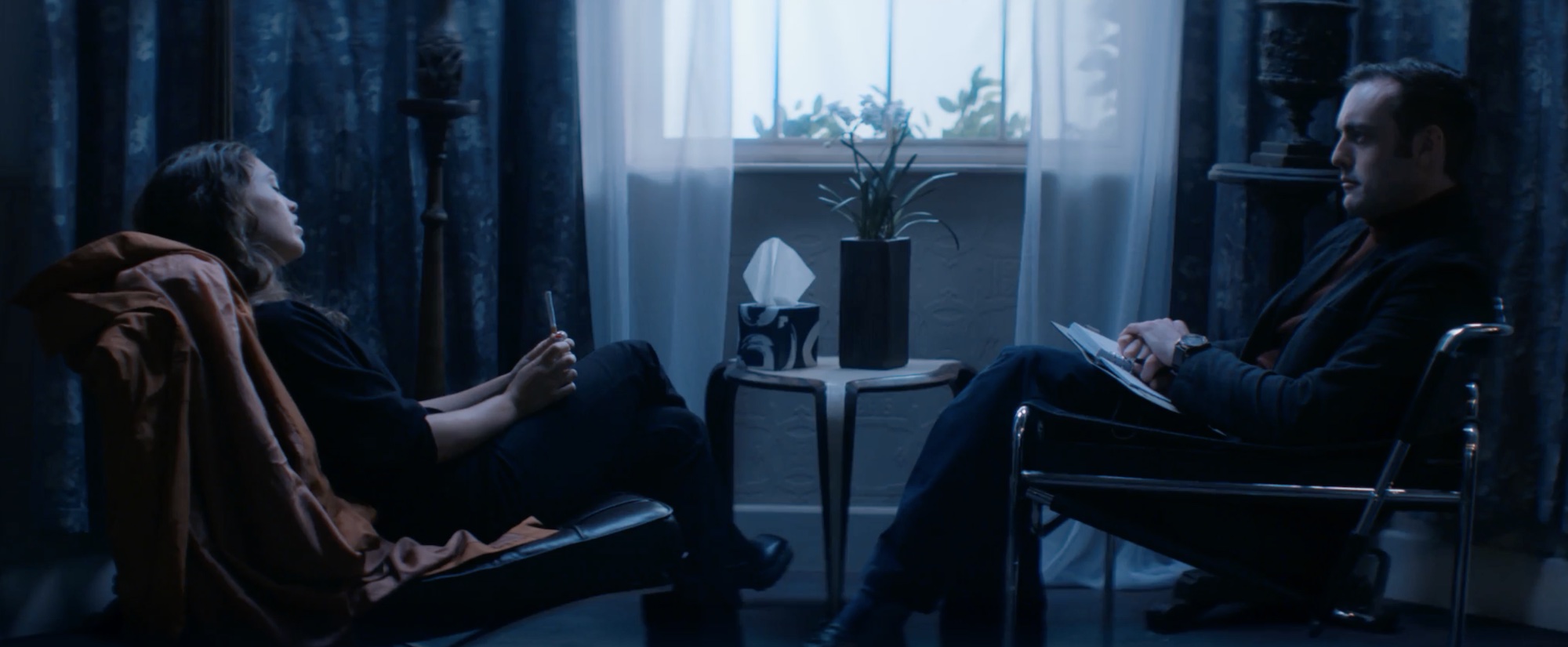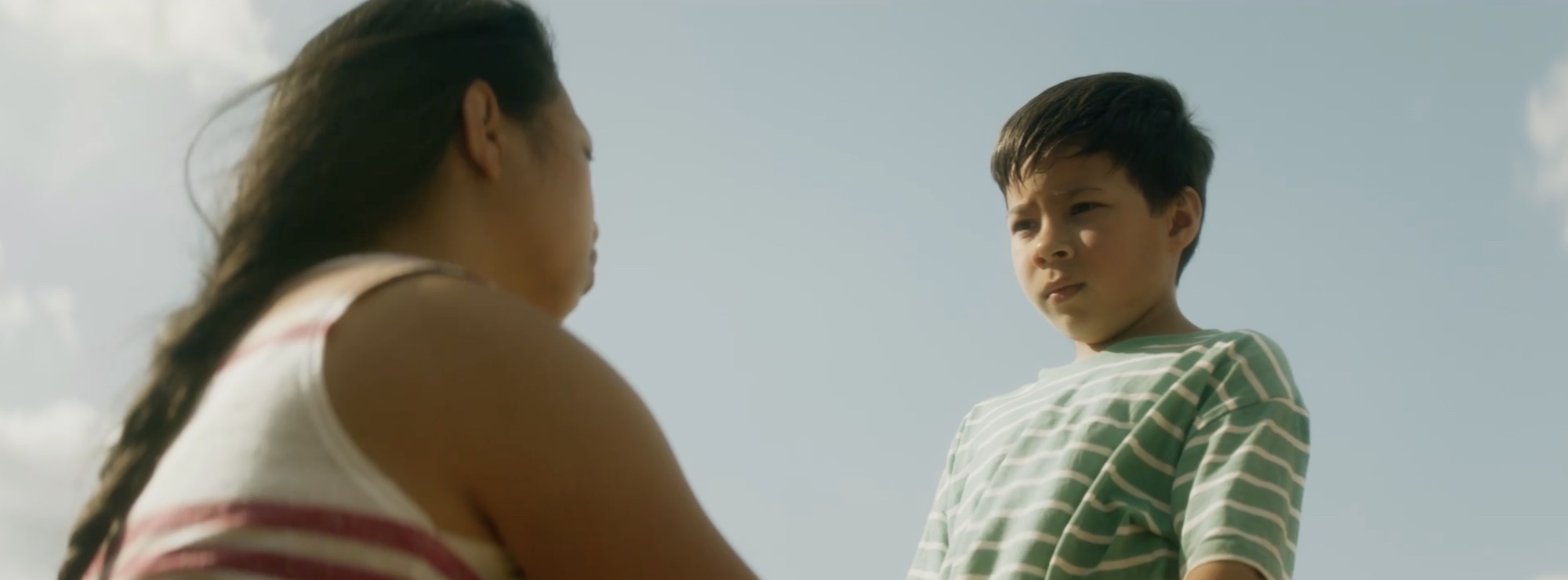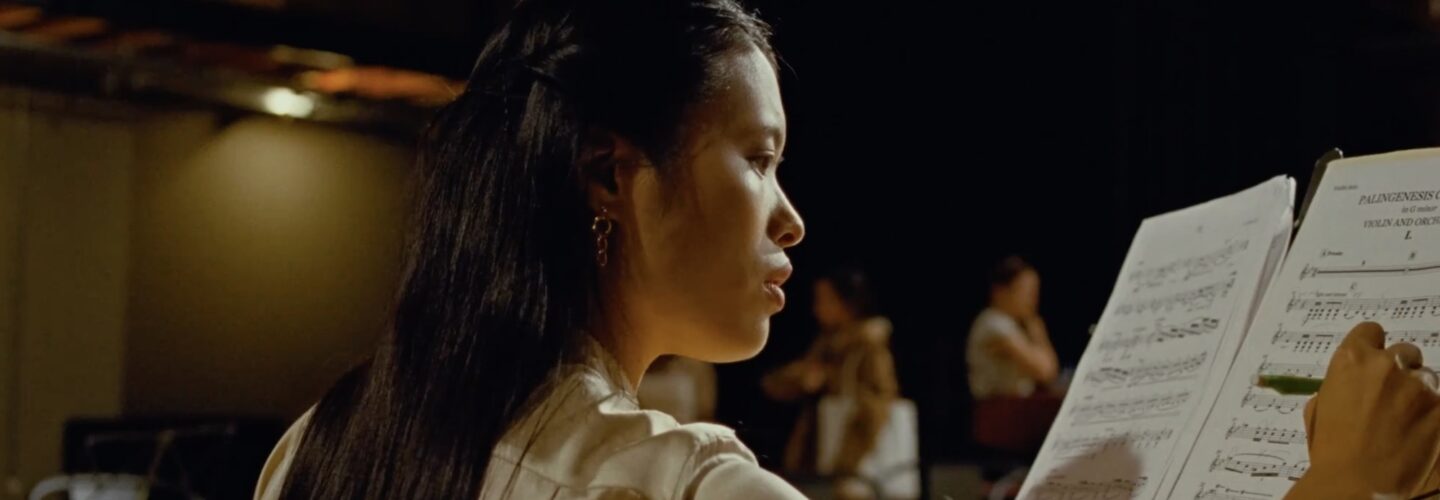
After last year’s outstanding showcase, which featured films that have since gone on to be BAFTA nominated, DN is back covering the work made by the National Film and Television School’s yearly graduating cohort. This year’s selection of films continues to reflect a trend that began with last year’s work of being a product of working amidst a pandemic. That has by no means quelled the sheer ambition of the films though. In fact, the production design in particular is of an exceptionally high calibre this year with fictional stories set in and amongst fully-realised flooded rooms, orchestra pits and even a sea vessel. As per usual there’s a wonderfully wide-ranging selection of work covering a variety of genres which continue to prove with good reason why the NFTS is dubbed ‘England’s leading film school’. DN is here to offer 10 selected highlights from the school’s showcase below, which unfortunately doesn’t include any of the animation work as it was still being finalised down to the wire, for you to keep your eye on in the coming months.
Terminus (or How Dr. Clark Almost Saved The World) – Sarah Knar
Sarah Knar’s Terminus is, stylistically, like the love-child of Michel Gondry and Mike Flanagan in that it’s a surreal human drama encased in the dressing of a slick, psychological horror. The story follows Willow, a psychiatric patient who believes she is the cause of rainfall that has been pouring for weeks on end. Knar’s short is brilliantly directed with some truly outstanding production design that underpins her protagonist’s mysterious ongoing psychosis. A great piece that exemplifies how the NFTS encourages and facilitates boundary-pushing work.
Tremolo – Jade Li
A moving personal drama about the return of old scars. When Victoria, an accomplished violinist begins rehearsals with the British orchestra she finds herself encountering dormant issues she thought she’d overcome. Dramas set in the world of classical music are tricky to pull off as it’s hard to find actors who can double as expert musicians or vice versa. Lead actor Sherry Shuen, however, expertly carries the baggage of her character Victoria, conveying the emotional turmoil she’s going through both behind closed doors and directly through her musicianship. Jade Li’s direction is clever and subtle too with a clear understanding of the power of visual imagery and the need to not overstate her character’s trauma.
Virile – Lydia Rui
Set in the context of a major world fertility crisis, the world of Bo, a young androgynous deckhand aboard an all-female research vessel, turns upside down when a castaway man appears. Lydia Rui’s film is a character piece that confronts the interlinking psychology of identity, masculinity and sexuality within her troubled protagonist. It’s an incredibly mature film and Rui’s plentiful experience as a filmmaker is clear with decisive and visual direction that gives every corner of the ship a tense and confrontational atmosphere.
OnlyFran – Sarah Roberts
Writer/Director Sarah Roberts’ short comedy OnlyFran tackles the classic malaise that accompanies being a young, aimless twenty-something. Roberts’ central character Fran is down on her luck and is attempting to navigate life whilst being financially exploited by her boss and talked down to by her condescending middle-class friends. It’s the first episode in a, hopefully, ongoing web series which succeeds thanks to an excellent screenplay that’s realised through honest direction and wonderfully wince-inducing characters that are far too familiar.

Whiteboy – Matty Crawford
Whiteboy is a personal piece of magical realism about a young boy experiencing the feelings of diaspora for the first time. When a young boy and his mother move back to the Philippines, the boy struggles to assimilate within the local community but when he meets an estranged local spirit his perspective grows unexpectedly. Matty Crawford’s film is beautifully executed thanks to a heartwarming central performance from Thomas Bisland who conveys his character’s growing sense of despondency subtly throughout his journey.
Silence – Arnas Pigulevicius
Arnas Pigulevicius’ short documentary Silence is a frighteningly prescient account of Soviet occupancy in a remote forest deep within Lithuania. Pigulevicius converses with locals who recount their family’s experiences of living in solitude whilst housing partisans who sought to oppose the invasion. It’s a very sombre and reflective watch and it captures the lingering traumatic effects of these instances that can still be felt within the community today.
This Is Not A Sport Film – Lily Ahree Siegel
A disabled filmmaker takes an introspective look at her journey through the sport of wheelchair rugby. Director Lily Ahree Siegel’s personal documentary is a reflection on the boundaries and restrictions we place on our own sense of ability. Siegel looks to embrace her own relationship with physical activity again after years of doubt due to being inspired by watching a game of wheelchair rugby. But as the title suggest this isn’t your typical sports documentary. Siegel doesn’t seek to use the sport as a vehicle for an all-too predictable triumphant ending, instead she uses it as a means of enacting important self-reflection. In doing so, Siegel has crafted a strong and personal thought-provoking document which deserves all the plaudits.
Breakable – B Welby
There’s a tender naturalism to the performances in B Welby’s Breakable, a drama about the underlying tensions between two friends. Seb has invited Markie on what he thinks is a camping trip where he’ll connect with his old friend. In actuality, it’s a healing retreat where Seb hopes he can open Markie up to his newfound way of life and confront shared traumas. The most striking aspect of Welby’s film is the mature restrain on show, each scene slowly builds to a simmering finale which allows the audience to really dive deep into these characters over the film’s twenty minute runtime.
Charity – Laurence Donoghue
Charity is a comedy drama about a fundraiser who, whilst raising money for young adults who’ve overcome hardship, strikes up an odd relationship with a potential wealthy client. Director Laurence Donogue weaves a story with a smart screenplay that doesn’t over-explain, instead offering small nods and hints towards his protagonist’s own troubled history. It’s also a great example of a film which doesn’t take itself too seriously and sees the humour often found in the dark moments of life, creating a fully-rounded and honest portrait of someone truly down on their luck.
The Leper – Hugh Mulhern
Set in the grotesque world of exploitative celebrity photography, Hugh Mulhern’s fictionalised drama The Leper tracks an ex-photographer as he reflects upon an exchange he once had with a with a cancer-stricken reality star. It’s a tense and sickening watch at times but it’s also a character study, looking into the motivations of these individuals and the ideology they manifest amongst themselves to justify their actions.
You can find more unmissable films, like the ones featured in the NFTS Graduate Showcase 2022, in our Best of Fest collections.


